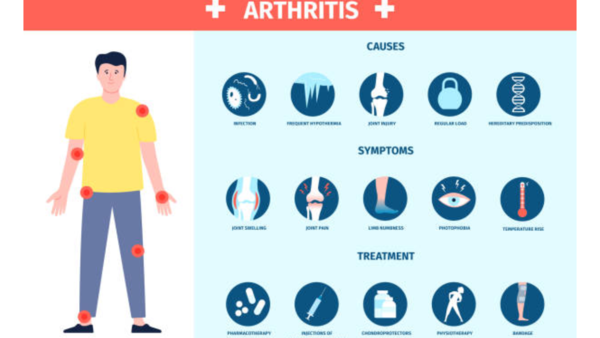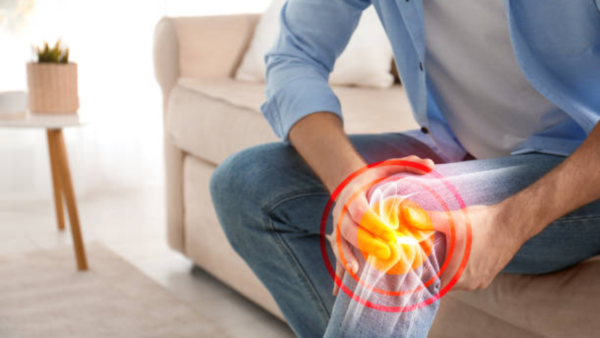Tamarind seeds: Are tamarind seeds Ayurveda’s well kept secret for arthritis? |
Of the several remedies that are used to alleviate the unbearable pain of arthritis, a lesser known one is the use of tamarind seeds. These seeds have gained attention for their potential role in alleviating arthritis symptoms due to the presence of certain compounds like tannins and flavonoids, which have been shown to reduce oxidative stress and inflammation, key factors in arthritis.The seeds are rich in minerals like magnesium and potassium, which are important for bone health and muscle function, providing relief from stiffness and discomfort associated with arthritis. Many believe that tamarind seeds may help improve joint lubrication, promoting smoother movement and reducing pain.
While tamarind seeds show promise, there is still limited scientific evidence to prove their effectiveness as a standalone treatment for arthritis. They can be used as a complementary approach alongside medically prescribed treatments for arthritis.
“Because of its possible health advantages, particularly their ability to reduce inflammation, tamarind seeds have long been used in many societies. There isn’t enough data to conclusively support the use of tamarind seed extract as a treatment for arthritis, despite some research suggesting that it may help lower oxidative stress and inflammation,” said Dr. Akhilesh Yadav, Associate Director- Orthopaedics and Joint Replacement, Max Hospital Vaishali.
“Even while they might be a beneficial addition to a balanced diet, tamarind seeds shouldn’t be thought of as a stand-alone treatment for arthritis. To properly manage arthritis, it is imperative to seek the advice of a doctor for a comprehensive treatment plan that includes medication and lifestyle modifications. Tamarind seeds can offer some relief when added to a balanced diet, but they shouldn’t be used in place of standard medical care,” he added.
How to identify arthritic pain? “Joint pain, stiffness, and swelling are frequently the first symptoms of arthritis. The hands, knees, hips, or spine are usually where these symptoms first appear. They can get worse with movement or after periods of a lack of activity such as sitting or sleeping. During the initial phases, the stiffness is most obvious in the morning or after extended periods of rest, but it normally goes away as you move. A reduction in range of motion or difficulty performing daily tasks, such as walking or holding items, may also occur to certain individuals. Sometimes, the afflicted joints could seem a little red or feel warm to the hand,” explained Dr. Indrajit Agrawal, Clinical Director – Rheumatology, Marengo Asia Hospital Gurugram.
Using home remedies as a cure for arthritis
Home remedies can provide relief from arthritis symptoms, but they are not a cure. Many natural approaches, like using turmeric or tamarind for its anti-inflammatory properties, applying heat or cold therapy, and maintaining a healthy diet rich in omega-3 fatty acids, can help reduce pain and stiffness. Gentle exercises like yoga or swimming also improve joint flexibility.
While these remedies may reduce discomfort and improve mobility, they should complement, not replace, medical treatments.
Before incorporating such remedies into your routine, it’s important to consult with a doctor to ensure they are safe and appropriate for your specific condition.
Conventional treatment methods for arthritis
Arthritis treatment focuses on relieving symptoms and improving joint function. Common methods include medications, such as NSAIDs (ibuprofen, naproxen) to reduce pain and inflammation, and DMARDs (disease-modifying antirheumatic drugs) like methotrexate for rheumatoid arthritis. In more severe cases, biologics may be used to target specific components of the immune system.
Physical therapy helps strengthen muscles around the joints, improve flexibility, and maintain range of motion. Exercise tailored to the individual can also alleviate stiffness.
Lifestyle changes, including weight management and a balanced anti-inflammatory diet, can help reduce strain on joints. Heat and cold therapies are useful for managing pain and swelling.
Exercises for elderly flexibility and joint health: Things to do and avoid
In advanced cases, surgical options like joint replacement or repair are considered. Complementary treatments, such as acupuncture or yoga, might also provide relief when used alongside conventional therapies.
Early detection plays a crucial role in the effective treatment of arthritis, significantly improving the quality of life for patients. Arthritis is a group of conditions that cause joint inflammation, pain, and stiffness, and includes common types like osteoarthritis and rheumatoid arthritis. Detecting the condition early helps prevent irreversible joint damage and deterioration of overall mobility.
For conditions like rheumatoid arthritis, early diagnosis allows for the use of DMARDs (disease-modifying antirheumatic drugs) that can slow disease progression. Starting treatment in the early stages can prevent the joint deformities and systemic complications that often occur if left untreated.
In cases of osteoarthritis, early intervention with lifestyle changes such as weight management, tailored exercises, and physical therapy can reduce joint strain and delay the need for surgery. Timely use of pain management techniques like medications, and non-drug therapies like heat/cold application, can also provide long-term relief.
Early detection involves recognizing subtle symptoms like morning stiffness, joint tenderness, and occasional swelling. Regular check-ups, especially for those with a family history of arthritis, help in identifying the condition before severe damage occurs. With prompt intervention, patients can maintain joint function and live healthier, more active lives.
No Byline Policy
Editorial Guidelines
Corrections Policy
Source

